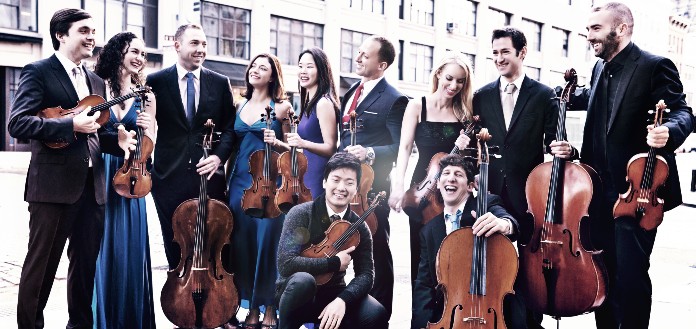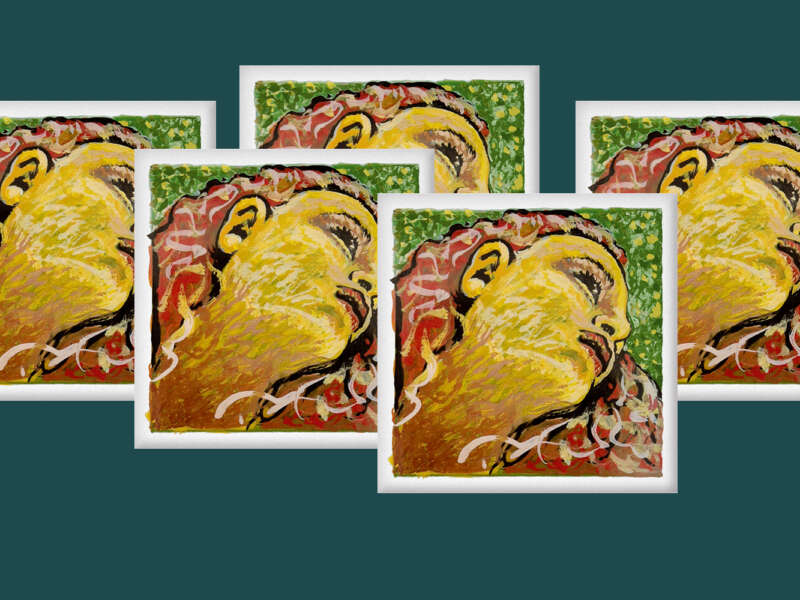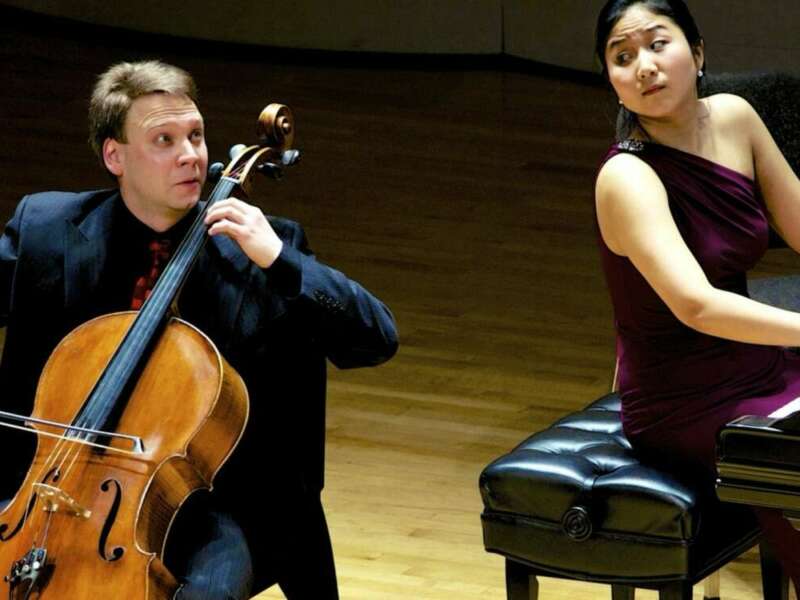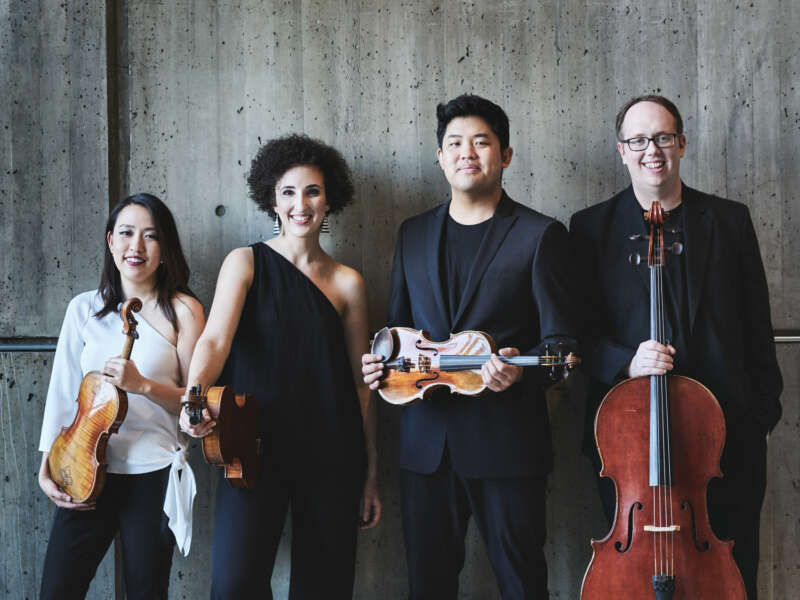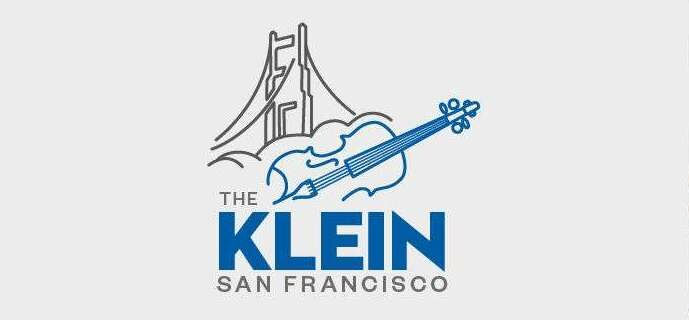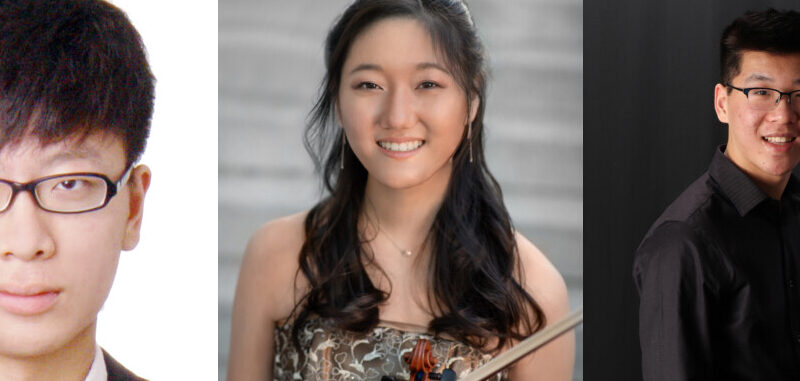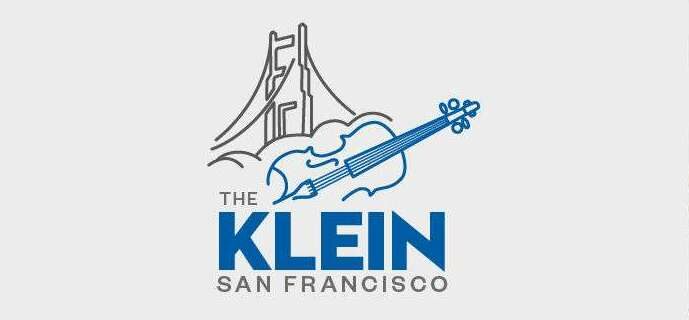VC INTERVIEW | Luke Fleming - Founder of the Manhattan Chamber Players Ensemble
The Violin Channel recently caught up with violist Luke Fleming - founder of the New York City-based Manhattan Chamber Players
The Violin Channel recently caught up with violist Luke Fleming - founder of the New York City-based Manhattan Chamber Players.
Luke discusses new initiatives the collective are implementing this month during COVID-19 plus shares valuable advice for freelance musicians world-over.
Tell us about the Manhattan Chamber Players and how you came together as a collective?
"The Manhattan Chamber Players grew out of an idea I first had when I was a few years into my six years as violist of the Attacca Quartet.
It was rare that I had opportunities to play with musicians outside of the quartet, but every now and I would get together with some of my close friends, may of whom were also quartet players or career chamber musicians, and we would have informal reading parties.
This eventually led to a few formal concerts. After one of these concerts, I vividly remember Brook Speltz (cellist of the Escher Quartet) saying to me, “Dude, we should do this for real. Like it should be a thing.”
I completely agreed, but the quartet life is a busy one, so it was really only an idealistic dream for quite a while before I decided to take a leap of faith and make bringing together the people who would become the Manhattan Chamber Players the number one priority in my life.
The original roster from 2015 was comprised of only violinists, violists, cellists, and pianists, but this has since expanded to include a clarinetist, flutist, and harpist"
How are Manhattan Chamber Players unique?
"MCP takes as a model two organizations for which I have the utmost respect, and to which many of our MCP Artists belong or have belonged: Musicians from Marlboro and the Chamber Music Society of Lincoln Center.
We are, however, unique in a number of ways. In terms of putting together concert programs, as a roster comprised of all the instruments needed to play the bulk of the core chamber literature, after we are booked through our management (Arts Management Group), we are then free to collaborate with presenters to put together programs that are as personalized as the presenter wants.
Rather than having, say, five programs that we will play for an entire season where the presenter simply chooses one of these, we usually take a piece the presenter wants to have performed on their series as a starting point, then build a program around that work and instrumentation, usually with a common thread among the works.
Sometimes, the presenter will even have an entire, exact program of his or her own in mind, which we can also accommodate. The point being: MCP has a very flexible approach to programming, and the size of our ensemble (i.e. the number of roster artists we use) for any given concert depends on the programming needs.
Beyond these unique aspects of our makeup and programming, I will also say that MCP is comprised of kindred spirits, musically and personally.
I have been performing with many MCP members since long before I was a member of any ensembles of which I am or have been a part.
Just a few examples: I have been performing with MCP Artists Milena-Pajaro van de Stadt and Grace Park regularly since Sarasota Music Festival in 2006, then two years later I began playing with MCP Cellist Andrew Janss at the Marlboro Music Festival, all years before I joined my former quartet. The same is true for most of our roster.
Most of us cut our chamber music teeth at the same festivals – Marlboro, Ravinia, Yellow Barn – and/or were in school together – Curits, Juilliard, NEC.
We have been a part of each others’ personal and professional lives since the formative days of our musical training. One could say that we all speak the same language.
Everyone on the roster is a good friend, and a few of them are some of my closest friends in the world. So when we come together for any given project, tour, or single concert, it always feels like a special occasion, a family reunion of sorts.
How are you coping in these difficult times?
"I think keeping busy is key for me.
Thankfully, between coordinating two weekly online concerts with our MCP Artists, advertising them to our mailing list and elsewhere, handling donations and bookkeeping, handling the logistics of bookings many months away, practicing viola, and helping my family out as best I can (though I live in NYC, I am with my family in New Orleans for the duration of this pandemic crisis), I have plenty on my plate!
Some people have taken this enforced down time to rest and relax, and I think that is important as well – everyone is different. I did that for the first few days and got really restless really fast, hence this new CO-VIDeo Concerts project"
Tell us about your CO-VIDeo Concerts series.
"MCP, along with our partner organization, the Crescent City Chamber Music Festival, each present one concert per week, streamed live on the MCP Facebook page. MCP’s is at 3 PM Eastern every Saturday, and the performers are all MCP Artists; CCCMF’s is at 3 PM Central every Sunday, and the performers are all past Festival Artists at CCCMF (many of whom are also MCP members).
Because of social distancing, most performances are solo, but because some of our members live with family members, spouses, or partners who are also MCP Artists, some chamber music is possible. For example, Brendan and Brook Speltz (both Escher Quartet members as well) and Brook’s wife Milena Pajaro-van de Stadt of the Dover Quartet perform as a string trio for our concerts every week!
Each performer(s) gets a ten-minute slot, and we have six slots for each one-hour concert. Each person or group does a separate live stream, which is then automatically posted to our Facebook page. This is great for viewing if you are not free at concert time, viewing it later of course means you miss out on the excitement of watching it live and being able to comment and interact with other viewers in real time.
We have a donate button on each live stream so people can contribute through Facebook as the concert is in progress, and the donate button also stays up once the video is posted. We also have handmade signs in the shot that gives the MCP website donation page address.
Because we are a 501(c)(3) organization, all donations are 100% tax deductible, and, in true chamber music fashion, they will be split evenly between the performers on each concert.
How can people help the Manhattan Chamber Players?
MCP is a 501(c)(3) organization, and we take donations year-round to support our self-presented programs in NYC, which we continue to curate on top of our busy concert schedule with outside presenters.
But for the foreseeable future, 100% of donations to MCP are going straight to our Artists, who, as I suspect many of your readers know, as freelance musicians are unable to earn any income from performing at the moment.
Of course, none of us know how long that will continue, but there is certainly no light at the end of the tunnel at the moment. And there is no safety net: because freelance musicians are self-employed, we are unable to collect unemployment benefits right now.
I launched MCP’s CO-VIDeo Concerts not only to give our MCP Artists an outlet through which to flex their creative muscles, but also to help raise awareness among our non-musician friends about the difficulties non-salaried performing artists are facing right now. By showing people through performance how important continuing to play concerts is to our Artists—and, hopefully, by reminding them how important live performance in general is to our creative landscape—I hope they will decide to support MCP and thereby support our struggling Artists in order to help them through this difficult time. If you are interested in supporting MCP and our Artists, you can visit: manhattanchamberplayers.com/donate"
What are you hoping your online audience will take away with them?
"I hope musicians who watch will enjoy getting to see their fellow musicians – and in many cases, their colleagues and friends – play their hearts out and support them! Playing for a live stream audience is in many ways more difficult than playing for a huge hall: there is no physical audience with whom you can interact, no acoustic to speak of (each person is usually broadcasting from his or her apartment or house), less-than-stellar recording equipment, and the added pressure of knowing that many musicians and presenters you know and respect might be watching!
For non-musicians watching, I hope they gain a greater understanding of how important performing is to all of us. I am sure many of the full-time musicians reading this have experienced people who have treated our profession as just a hobby, or have been asked something along the lines of, “That’s so cool! But what do you do to make money?”
The life of a freelance chamber musician is a difficult one to be sure, but it’s a life we love, and it brings a lot of joy to a lot of people!
I hope those watching gain a greater understanding of the significance of what we do, how it is sorely missing in this strange COVID-19 world we are living in now, and how devastatingly this pandemic crisis has impacted freelance performing artists like us"
What is your advice for freelance musicians all over the world right now?
"Oh wow, this is going to be a long answer…I have a few things to say about that, even though it’s only really been two weeks since all of this started!
1) My first answer is, I think, the most obvious one: Take this as an opportunity to spend more time with your instrument! Most of us, especially those past the student stage of our careers, spend so many hours each day playing gigs, coordinating concerts, emailing presenters and managers, updating websites, traveling to wherever we are playing, and about a million other things that we seldom get the luxury of having hours and hours to spend with our instruments in the practice room, which is pretty ridiculous when you think about it! I personally have really enjoyed bringing back some old repertoire and injecting new ideas and experience into it, plus learning some new pieces I never seemed to have time for before this, and finally re-approaching some technique work that always somehow gets pushed to the back burner. Now is a valuable time to do all those things you keep putting off, and it will make you a better player—which is why we all got started in the first place, right?
2) If you are fortunate enough to be with family, a spouse, a partner, or even a roommate during this largely isolated time, think of it as a unique opportunity to spend some quality time together! Most of us freelance musicians lead such crazy hectic lives, travel a great deal, and keep erratic schedules that never seem to line up. I am fortunate to be staying with my mother and sister in New Orleans, LA during this pandemic crisis, and it has been a real gift to have so much time—not just for a holiday or family function—to spend with them without a deadline or agenda.
3) Take this time to be healthier! It’s often very difficult for us freelance artists, particularly those who travel a great deal, to keep a healthy lifestyle. Odd hours, weird meal times, and dinners consisting of post concert reception hors d’oeuvres and white wine (we’ve all been there, right?). Plus, no time—or place—to exercise (Classical music is a decidedly indoor activity). Right now, however, cooking for one’s self is definitely the safest option; fresh air is one of the best ways to battle the coronavirus; and exercise is both good for the immune system and has the added mental benefit of keeping one sane when cooped up all day. There is literally no excuse not to treat our bodies better right now.
4) Finally, and perhaps most importantly, please use this time to be an advocate for our professions as freelance musicians. Already, so many of us have made our dire current situation known to our representatives locally and nationally, and, though we have a long way to go, we are finding ways to make it through this difficult time together. So find ways to bring music to your friends and community in a safe and engaging way, which will also show people how important it is that we do what we do. In times like this, it’s easy for people to brush aside the performing arts as an inconsequential, irrelevant luxury when the world has bigger problems to deal with. On the surface, there may be some truth to that, but I cannot imagine a society without people like us doing what we do every day – so let’s help people understand our importance by advocating with our words and actions and music for what we love!"
july 2025
august 2025


